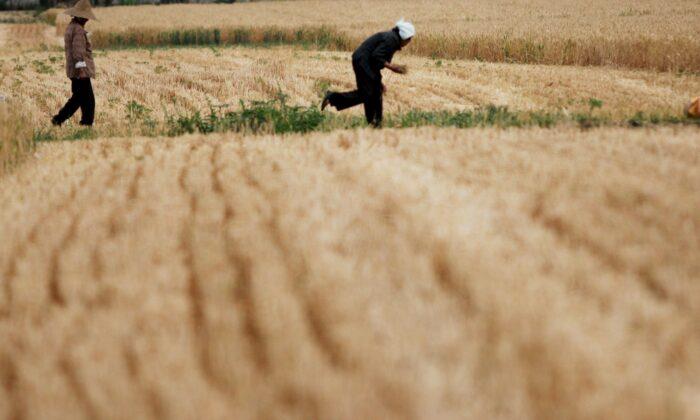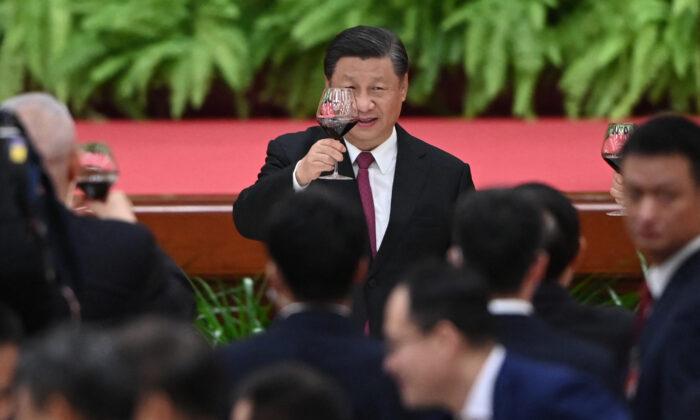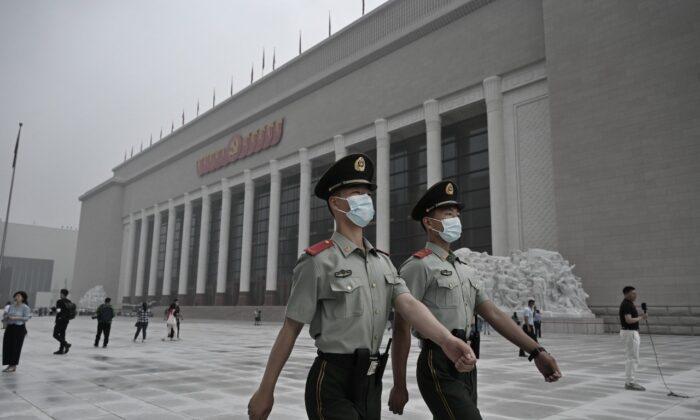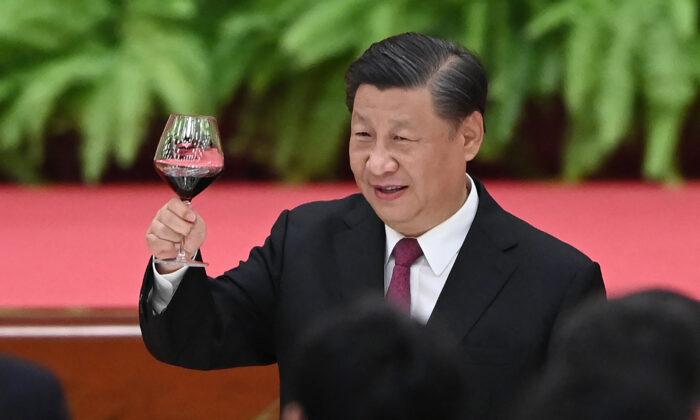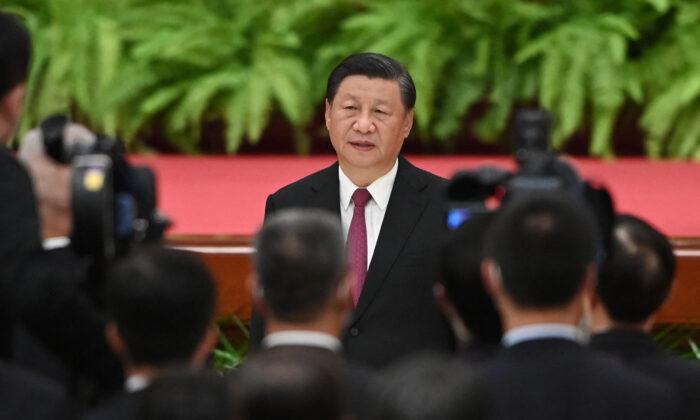Tens of thousands of “law enforcement” personnel dispatched by Beijing have descended upon China’s vast countryside to enforce compliance with the Chinese regime’s latest demands for expanded grain production.
More than 2,500 grassroots “agricultural law enforcement teams” have implemented the central authorities’ new directives on planting, animal husbandry, water usage, and product quality and safety.
The result has been chaos and misery across numerous communities as the rural management personnel wantonly inflict severe consequences on hapless residents and their property for minor or even nonexistent infractions.
One video posted in early April from the outskirts of Yuncheng, China, shows a road roller with an affixed banner reading “strictly ban planting and selling green produce.” The machine can be seen crushing a patch of winter jujubes.

‘Managing the Countryside’
A combination of unprecedented flooding, droughts, and the seizure of fertile land to fuel China’s bloated real estate development has taken a serious toll on the country’s harvests. With the international climate turning against the regime, Beijing has set its sights on becoming 90 percent self-sufficient in grains as projections for China’s food security dim.In February, the State Council, communist China’s cabinet-like body, published its “No. 1 Document,” which called for the “stable production and supply of grain and important agricultural products,” as well as for China’s farmers to meet a quota of 650 million metric tons of grain this year.
Although China is roughly the same size as the United States, it has more than 1 billion people, compared with 330 million Americans. According to Chinese financial news site Economic Daily, the country had just 316 million acres of arable land in 2019, while the United States boasted 893 million acres—the most of any nation on earth.
Economic Daily further noted that China’s agricultural capacity continues to decrease and that by 2032, it will fall below the “red line” of 1.8 billion mu (roughly 296 million acres).
Cao Yaxue, editor of the human rights website China Change, told The Epoch Times that in its anxiety over grain production, the “authoritarian government in Beijing knows it isn’t enough to simply issue written edicts.”
“It has to implement its demands through force,” Cao said.
The personnel tasked with carrying out the CCP’s directives on maximizing grain output are part of the Comprehensive Agricultural Law Enforcement Teams (CALET), a program established under the Ministry of Agriculture and Rural Affairs following CCP and state institutional reforms announced in 2018. According to state statistics, there are currently more than 80,000 officers assigned to 2,564 enforcement teams.
Chinese netizens quickly nicknamed the rural management enforcement teams “nongguan,” after the infamous urban administrative and law enforcement officers called “chengguan,” or “urban management.” These officials are known for their coercive and violent behavior, terrorizing roadside business owners and other, often low-income, residents on the streets of China’s cities.
Tunnel Vision and Regime Control
On April 15, the Agricultural Ministry published a question-and-answer article between journalists and a “relevant person-in-charge” at the ministry’s Department of Laws and Regulations.During the Q&A session, the official explained how CALET was established in line with requirements made at the Third Plenum of the CCP’s 19th Central Committee in March 2018. The Party leadership had at the time mandated the creation of five types of “law enforcement teams” to be responsible for agriculture and environmental protection, transportation, culture, and the market.
The official noted that the mission of CALET officials is to clamp down on fraud and other illegal activity in the countryside, not “interfere with the normal production and livelihoods of peasants.”
However, the CCP’s tunnel vision on maximizing grain output at all costs, coupled with the political culture of sweeping, heavy-handed mass campaigns, doesn’t foster smooth or humane implementation of the Agricultural Ministry’s stated goals.
According to Wang He, a Chinese political commentator and contributor to the Chinese-language edition of The Epoch Times, the arrogance with which “rural management” officials flaunt their “empowered” status indicates that they indeed operate with higher approval.
This year, the instructions for local CCP officials are becoming even stricter. In March, the Agricultural Ministry issued a mobilization order to the CALET units nationwide, which followed the implementation on Jan. 1 of the ministry’s “comprehensive administrative law enforcement measures for agriculture.”
Yet the basic economic incentives for farmers run up against the policies of the CCP, which sees all farmland as public property that’s merely worked, rather than owned, by China’s roughly 400 million peasants.
Farming, and in particular the cultivation of grain, is extremely unprofitable in China, and peasants carry the burden of various convoluted regulations and fee schedules. They’re also frequently the victims of outright graft.
“Farmers lack opportunities to generate income,” Cao said. “This is because the state maintains monopolies on all the major agricultural products.”
Sun was an advocate of rural reforms that would allow farmers to both produce and market their products, something that the system of state monopolies prevents.
“The one thing the CCP will never allow farmers is full control over their production,” she wrote.
